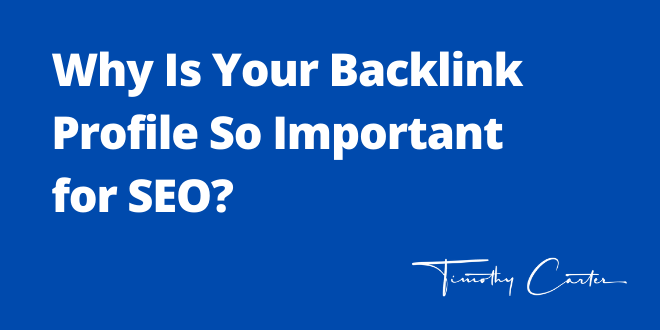
What Makes Copy Persuasive?
December 22, 2021
Why Is Your Backlink Profile So Important for SEO?
January 12, 2022Google provides an excellent service to the world, enabling us to search the web for information, products and whatever else we’re looking for. It even does the heavy lifting of determining which results are a “best fit” for our queries, providing us only with contextually relevant entries and ranking them in order of how trustworthy or authoritative those entries are. The higher-ranked a web page is, the more trustworthy Google thinks it is — which is good, because we’re probably only interested in clicking that first entry in the SERPs.
But this presents a secondary problem: rank manipulation. Motivated webmasters can undertake schemes and nefarious habits designed solely to manipulate their rank — and appear more trustworthy than they actually are.
Google, in response, has designed countermeasures to identify instances of rank manipulation and penalize or remove them, accordingly. But just how good is Google at detecting rank manipulation?
The problem with defining rank manipulation
Before we get too deep into this discussion, it’s important to hash out the problems with defining “rank manipulation.”
Some examples of rank manipulation are egregious. In the early days of search engine optimization (SEO), it was common for people to spam keywords throughout their website to rank higher for that keyword term. For example, you might find a website simply consisting of the phrase “best pizza NYC” over and over again. This clearly serves no purpose other than keyword optimization, is bad for user experience and is unambiguous in its intentions.
Other examples are harder to define. For example, it’s considered rank manipulation to buy a link on another website for the purpose of boosting your rank; the same is true if you spam your link on another site, through something like a forum comment. If a publisher voluntarily chooses to link to your site, that’s perfectly acceptable. But what if you pay to have an article featured on a high-profile publisher site and your article happens to include a natural link back to your site? Is that rank manipulation or not?
It’s hard for human experts to define exactly what rank manipulation is, so it’s only natural that Google’s ranking algorithm would struggle as well.
Google’s fight against rank manipulation
Currently, if you’re found to be practicing rank manipulation, Google has two main tools to penalize you:
- Natural ranking effects. If you’re using techniques that violate Google’s quality standards, or if the quality of your work is deemed to be insufficient, your site might decline in rankings naturally. This usually happens immediately after a new algorithm update, and your rankings won’t change too much in the process. You can often attribute it to natural volatility in search rankings after such an update.
- Manual actions. If you’re found to be practicing egregious violations of Google’s terms of service, you could face a “manual action” from Google itself. If this is the case, you may be blacklisted from Google search results altogether. Don’t worry: If your site has been the target of a manual action, you’ll know about it. Google will go out of its way to tell you about the penalty and give you a potential path to resolution. You can also check your current manual actions in Google Search Console.
So what qualifies as “rank manipulation” in Google’s eyes?
Usually, it’s one or more of the following:
- User deception/manipulation. If you deceive or mislead your users in any way, Google is going to catch you. Misleading redirects, masked links and other forms of manipulation are good ways to attract a penalty.
- Keyword spam. Ever since semantic search capabilities entered the equation, exact match keywords became less valuable. Even so, millions of webmasters still practice keyword spamming in an ever to rise in the rankings — and nearly all of them eventually catch a penalty.
- Link schemes. Link schemes include shady practices related to link building, such as buying links or participating in link circles. Any link scheme has the potential to earn you a penalty.
- Very low-quality work. Spammy links, poorly written content, and other low-quality works are likely to get you penalized.
In other words, if you avoid these highest-priority violations, Google probably won’t be able to flag you for rank manipulation, even if the actions you’re taking are intended to increase your rankings.
The bottom line
How good is Google at detecting rank manipulation? It’s good, but it’s not that good. You’re not going to get away with obnoxious violations of Google’s webmaster guidelines. But if you’re genuinely trying to create high-quality work and provide good user experiences, Google’s not sophisticated enough to know your “true” underlying intentions.
The best SEO strategies today are ones that result in genuinely good content and good overall user experiences. So is it even fair to qualify these actions as “rank manipulation” in the first place?
Originally appeared in Entrepreneur





